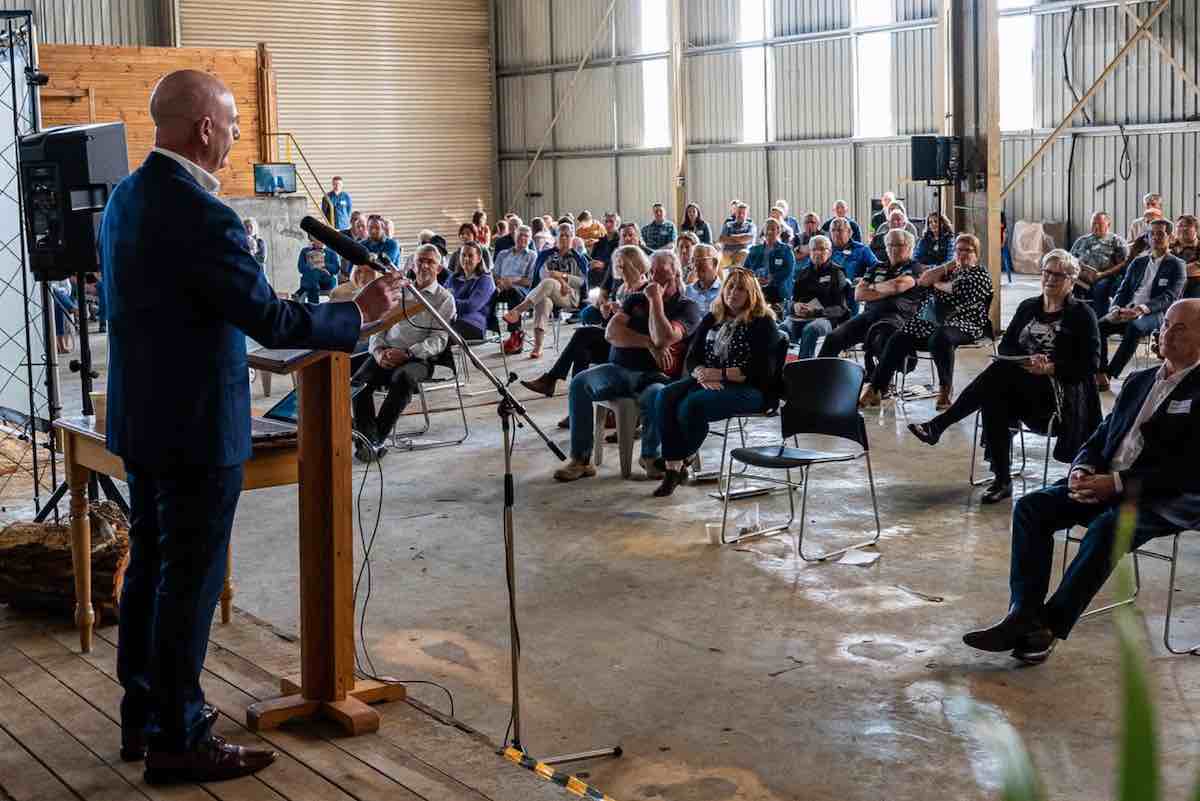

The Dorset region of north-east Tasmania has an important plantation pine industry, with four sawmills in the municipality. The timber business in the region has had its ups and downs – a major slump about a decade ago saw employment in the industry fall by 80%.
A group of locals saw an opportunity to develop a project that would tick many boxes: It would add value to waste, strengthen local businesses by paying them for their waste, and make a premium renewable fuel for which demand in Tasmania was rising quickly.
Better still, the local group decided to make the project a community-owned venture, by using a co-operative as the structure for the business. Many readers will know that Hepburn Wind is a co-operative, and that many of the community renewable energy projects being developed, underway, or already up and running in Australia are co-operatives.
Thus was Dorset Renewable Co-operative Limited born: a distributing co-operative registered in Tasmania, headquartered in Scottsdale. Its project: A plant to make wood pellets from the green pine sawdust available from the four sawmills in the district.
With the help of a grant from the Tasmanian government, the group set about defining and de-risking the project. It gathered formal agreements to buy the saw dust and to sell their pellets and had their raw material test pelletised, and the pellets tested against the highest European standard for fuel pellets. The group secured a location to house the plant, decided on the plant layout and equipment, and penciled in a turnkey arrangement to buy Italian equipment to dry the saw dust and make pellets. Finally, a Launceston business advisory firm developed a detailed financial model for the proposed business.
All these elements came together in early October last year when the Tasmanian Premier, Peter Gutwein, launched the Disclosure Statement for the co-operative (pictured above). The Premier is also a local Member of Parliament and has been very supportive of the group’s efforts to strengthen the local economy.
The Disclosure Statement describes the project and those behind it in detail and includes the results of the financial modelling. The launch was held in the very space where the plant would go and, even though Covid-19 restrictions limited the number of people able to attend, was well-attended in person and online.
While the attendees responded positively at the launch, they did not do so with their wallets. Essentially, the co-operative’s fund raising has failed to fire, and the group has been left wondering just how much support it really has in the local community and among renewable energy advocates.
This is a community renewable energy project, but one with a difference: the product will not be electricity, but will be a quality renewable fuel. Perhaps community renewable energy advocates are only interested in solar and wind projects?
David Hamilton is the chairman of Dorset Renewable Co-operative Limited, www.drcl.coop. David’s previous article was for One Step Off the Grid, where he wrote about his home solar system’s 100MWh milestone.
This post was published on June 17, 2021 11:15 am
Report warns excluding cooktops from residential gas phase-out could take a big bite out of…
US energy economist says we have got our electricity tariffs all wrong, by focusing almost…
Wayne Smith from the Smart Energy Council on what to expect from the federal home…
OpenSolar joins forces with LoanOptions.ai to help consumers access finance to invest in rooftop PV…
Both major political parties are being urged to cut the price of household solar batteries…
Solar expansion project at major Australian airport takes it past its target to self-generate 15%…